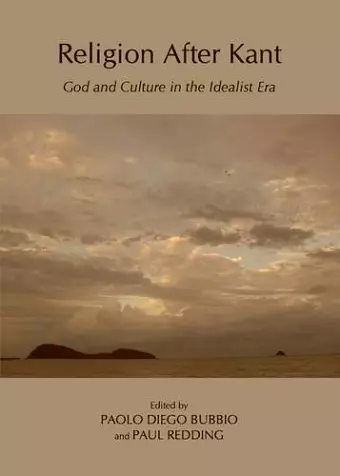Religion After Kant
God and Culture in the Idealist Era
Paolo Diego Bubbio editor Paul Redding editor
Format:Hardback
Publisher:Cambridge Scholars Publishing
Published:25th Apr '12
Should be back in stock very soon

After a period of neglect, the idealist and romantic philosophies that emerged in the wake of Kant's revolutionary writings have once more become important foci of philosophical interest, especially in relation to the question of the role of religion in human life. By developing and reinterpreting basic Kantian ideas, an array of thinkers including Schelling, Hegel, Friedrich Schlegel, Hölderlin and Novalis transformed the conceptual framework within which the nature of religion could be considered. Furthermore, in doing so they significantly shaped the philosophical perspectives from within which later thinkers such as Feuerbach, Kierkegaard, Wagner and Nietzsche could re-pose the question of religion. This volume explores the spaces opened during this extended period of post-Kantian thinking for a reconsideration of the place of religion within the project of human self-fashioning.
". . . German thought from Kant to Nietzsche has had an immense impact on philosophy . . . Its impact on religious practice and theology has probably been even greater. Religion After Kant: God and Culture in the Idealist Era gives us a fresh look at a philosophical movement that has also meant so much to the wide-ranging religious public."– Terry Pinkard, Georgetown University"In recent decades the relations of religion with politics and philosophy have become more complex and tense than confident Enlightenment triumphalists of the mid-20th century could have imagined. We need better modes of thinking about religion. This volume of essays offers new perspectives on 19th century thinkers such as Hegel, Kant, Nietzsche, Kierkegaard, Wagner, and others. These are serious philosophical and historical essays, but they also give those thinkers a new urgency. In these essays the history of philosophy is not a museum where we can see extinct species, but a resource where we can find unexpected novelty in reading older thinkers and helpful new directions for our own reflections on today's concerns and tensions."– David Kolb, Bates College
ISBN: 9781443835183
Dimensions: unknown
Weight: unknown
255 pages
Unabridged edition